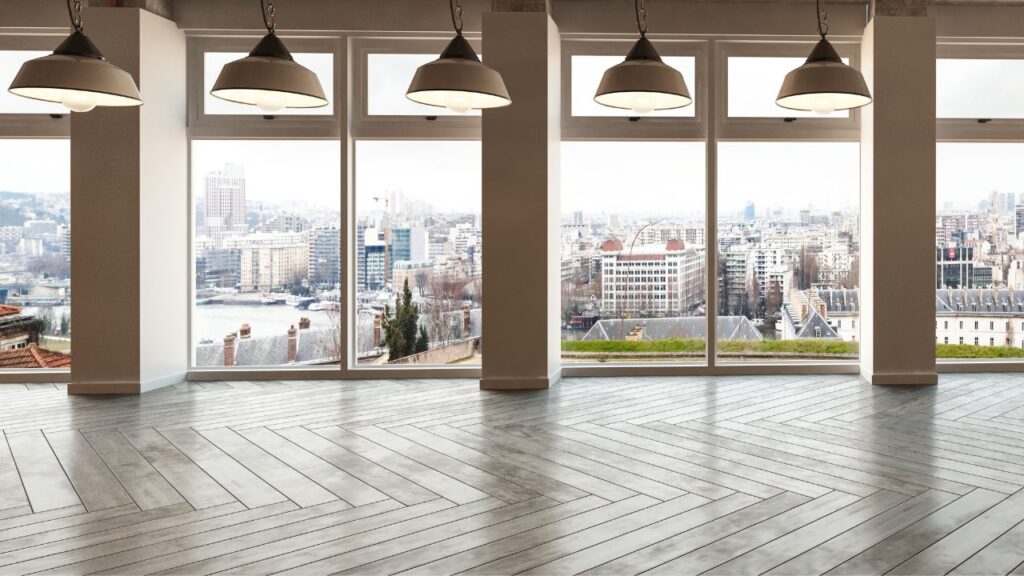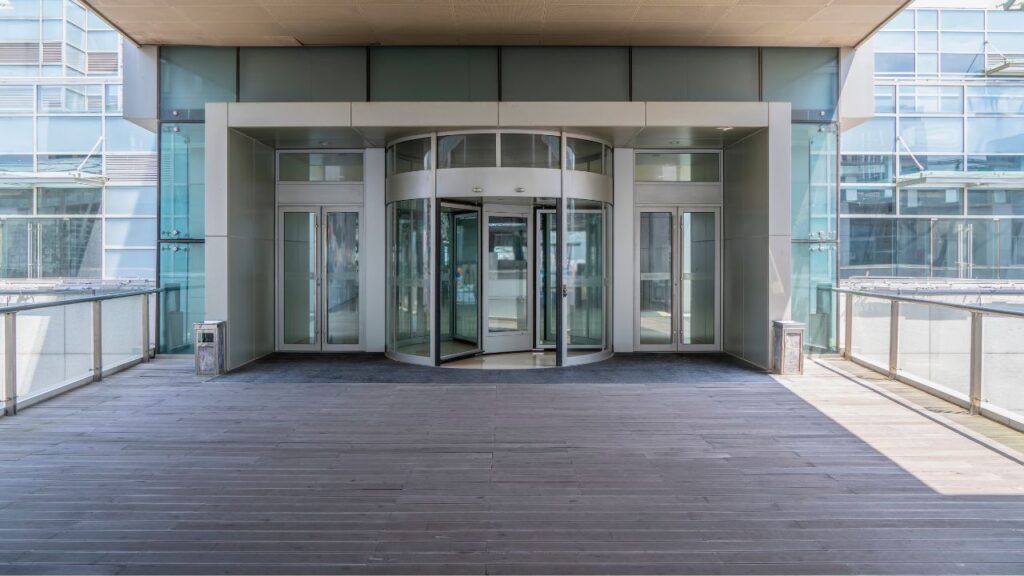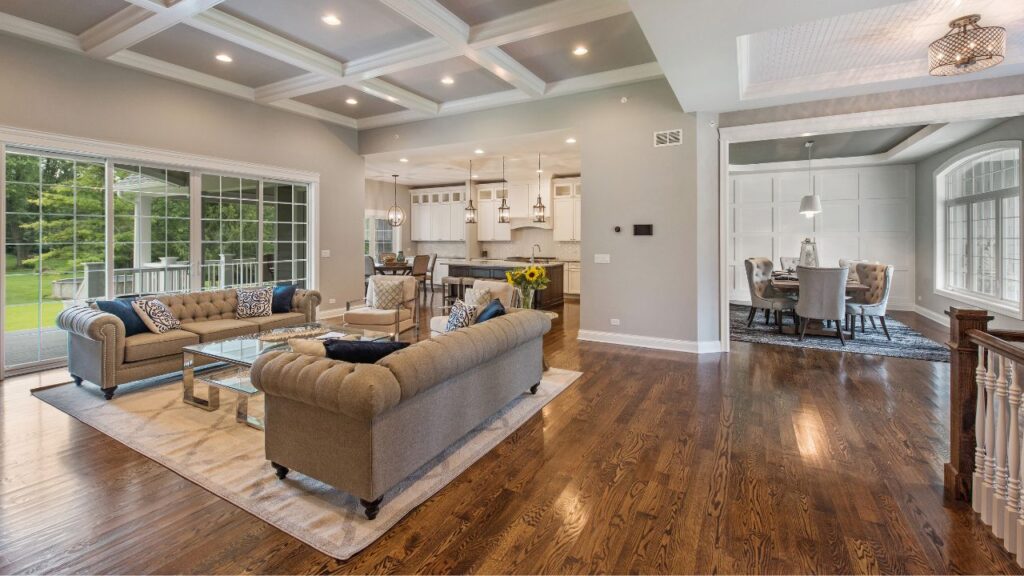Bid Confidently, Bid Successfully – Try Our Flooring Cost Estimates!
- Accurancy
- Efficiency
- Transparency
- Customization
- Time Saving
- Professionalism
- Cost Control

When it comes to enhancing the aesthetics and comfort of your condominium, selecting the right flooring is a crucial decision. The perfect flooring not only complements your interior design but also meets your lifestyle needs. However, before you embark on this exciting journey, it’s essential to understand the cost factors associated with condominium flooring. In this comprehensive guide, we’ll break down the key considerations and provide you with valuable insights to estimate the cost of transforming your condominium floors.

Hardwood flooring is renowned for adding a touch of warmth and sophistication to any space. Its natural beauty and timeless appeal make it a popular choice. However, it’s important to note that hardwood can be relatively expensive compared to other flooring options. The upfront cost is balanced by the durability and the potential to increase the overall value of your condominium.
Laminate flooring serves as a cost-effective alternative that successfully mimics the aesthetic of hardwood. It offers versatility in design, making it a suitable choice for various interior styles. While laminate comes at a more budget-friendly price point, it may lack the long-term durability and value addition associated with genuine hardwood.
For those prioritizing comfort and insulation, carpet flooring is an excellent option. It provides a soft and cozy surface underfoot, making it particularly appealing in bedrooms and living areas. However, it’s essential to be aware that carpet may require more maintenance compared to hard surfaces, and its lifespan can be influenced by factors such as foot traffic and cleaning habits.
The size of your condominium plays a pivotal role in determining the overall cost of your flooring project. Larger spaces require more materials and labor, leading to an increase in the total expense. It’s crucial to measure each room accurately to get a clear understanding of the square footage, allowing for more precise cost estimates.
Installation complexity refers to the level of intricacy involved in laying the flooring material. Intricate patterns, custom designs, or challenging layouts can significantly impact labor costs. If your chosen flooring design involves non-standard layouts or intricate details, it’s important to factor in potential increases in labor expenses during the planning phase.

The state of your existing subfloor is a critical factor influencing the overall cost of your flooring project. If the subfloor requires extensive preparation or repairs, additional costs may be incurred. Ensuring a well-conditioned subfloor is essential for the longevity and stability of the new flooring material.
Different areas within your condominium may have distinct requirements for flooring materials. For example, bedrooms may benefit from a soft and comfortable surface like carpet, while kitchens and bathrooms may demand more resilient and water-resistant options. Considering the specific needs of each space helps determine the appropriate flooring material, thus influencing the overall costs.
Incorporating additional features into your flooring project can contribute to higher costs. Underfloor heating, soundproofing solutions, or custom finishes are examples of such features. While these enhancements can elevate the comfort and aesthetics of your condominium, it’s essential to budget for the added expenses they may incur during both installation and long-term maintenance.

Cost Range: Low-grade domestic hardwood flooring, often in narrow and/or shorter planks, sees an increase, bringing the revised cost to $1.80 to $6 per square foot.
Mid-grade hardwood flooring, encompassing quality domestics and some exotics, experiences an uptick, placing the new cost between $6 and $9.60 per square foot.
For premium-grade hardwood flooring of all types, which includes wide planks with hand-scraped finishes or upgraded treatments, the cost witnesses a rise, ranging from $9.60 to $24 per square foot.
Pros: Timeless appeal, durability, and can add value to your condominium.
Cons: Higher upfront cost, susceptible to scratches.
Cost Range: $3.60 to $11per square foot.
Pros: Affordable, versatile designs, easy maintenance.
Cons: Not as durable as hardwood, may not add significant value.
Cost Range: $2.40 to $9 per square foot.
Pros: Soft and comfortable, budget-friendly.
Cons: Requires regular cleaning, may show wear over time.
Economical: $2 – $8 per square foot
Mid-tier: $8 – $15 per square foot
Premium: $15+ per square foot
Pros: Sturdy, resistant to water, ideal for areas with heavy foot traffic.
Cons: Cold feel, requires grout maintenance.

Before embarking on your condominium flooring project, it’s crucial to start with precise measurements. Accurately measure the square footage of each room where you intend to install new flooring. This step lays the foundation for estimating material quantities and ensures a seamless and cost-effective flooring installation.
Choosing the right flooring material is a pivotal decision in your condominium renovation. Consider your preferences, lifestyle, and budget while making this choice. Hardwood exudes warmth and sophistication, laminate offers a cost-effective alternative mimicking hardwood, while carpet provides comfort and insulation. Each material has its unique characteristics, so make a selection that aligns with both your aesthetic preferences and practical needs.
Once you’ve decided on the flooring material, it’s time to consult with flooring contractors. Reach out to professionals experienced in condominium flooring projects to get detailed quotes. Provide them with information about your chosen material and any specific requirements unique to your project. These quotes will give you a clearer understanding of the overall costs, including labor and materials.
In addition to the primary material and installation costs, it’s crucial to factor in additional expenses. Consider the cost of underlayment, which enhances the performance and longevity of your flooring. If you desire extra features like underfloor heating or soundproofing, include these costs in your budget calculations. Being comprehensive in your cost estimation ensures that your budget covers all aspects of the flooring project.
With quotes from different contractors in hand, take the time to compare them thoroughly. Evaluate the details of each quote, including the breakdown of costs, timelines, and any warranties offered. By comparing multiple quotes, you gain insights into the competitive pricing landscape and can make informed decisions. Once you’ve assessed the quotes, set a realistic budget for your condominium flooring project. Having a well-defined budget ensures that your project stays on track and meets your financial expectations.
Undertaking a condominium flooring project requires careful consideration of various cost factors. The choice of materials, such as hardwood, laminate, carpet, or tile, significantly influences the overall expenses. Factors like square footage, installation complexity, subfloor condition, and additional features play pivotal roles in estimating costs.
Accurate measurement of the space and obtaining detailed quotes from experienced contractors are crucial steps. The comparison of quotes aids in understanding the financial landscape, empowering homeowners to make informed decisions. Setting a realistic budget ensures a seamless and cost-effective flooring installation that aligns with both aesthetic preferences and financial constraints. Whether opting for timeless hardwood, affordable laminate, cozy carpet, or durable tile, a well-planned approach guarantees a successful condominium flooring transformation.
The primary factors include the chosen material (hardwood, laminate, carpet, or tile), square footage, installation complexity, subfloor condition, location within the condominium, and additional features like underfloor heating or soundproofing.
Hardwood tends to be more expensive but durable, while laminate offers a budget-friendly alternative. Carpet provides comfort but may require more maintenance. Tile comes in various cost ranges based on quality.
Yes, different spaces may benefit from specific materials. For instance, bedrooms might be suitable for carpet due to its softness, while kitchens and bathrooms may require more resilient and water-resistant options.
Measure each room precisely, considering any alcoves or irregularities. The accurate square footage is crucial for obtaining precise cost estimates.
If the subfloor requires extensive preparation or repairs, additional costs may be incurred. A well-conditioned subfloor is essential for the stability and longevity of the new flooring material.
Incorporating features like underfloor heating or soundproofing can contribute to higher costs. It’s essential to budget for these enhancements during both installation and long-term maintenance.
Hardwood varies from $1.80 to $24 per square foot, laminate ranges from $3.60 to $11, carpet costs between $2.40 and $9, and tile has an economical range of $2 to $15+ per square foot.
Accurately measure your space, choose a flooring material based on preferences and lifestyle, obtain detailed quotes from experienced contractors, factor in additional costs like underlayment or extra features, and compare quotes thoroughly before setting a realistic budget.
Here I am going to share some steps to get a condominium flooring cost estimate report.
You can send us your plan on info@estimatorflorida.com
Before starting your project, we send you a quote for your service. That quote will have detailed information about your project. Here you will get information about the size, difficulty, complexity and bid date when determining pricing.
Our team will takeoff and estimate your project. When we deliver you’ll receive a PDF and an Excel file of your estimate. We can also offer construction lead generation services for the jobs you’d like to pursue further.



561-530-2845
info@estimatorflorida.com
Address
5245 Wiles Rd Apt 3-102 St. Pete Beach, FL 33073 United States
561-530-2845
info@estimatorflorida.com
Address
5245 Wiles Rd Apt 3-102 St. Pete Beach, FL 33073 United States
All copyright © Reserved | Designed By V Marketing Media | Disclaimer